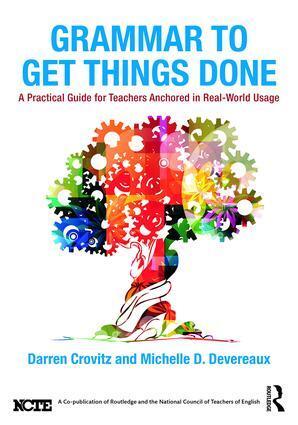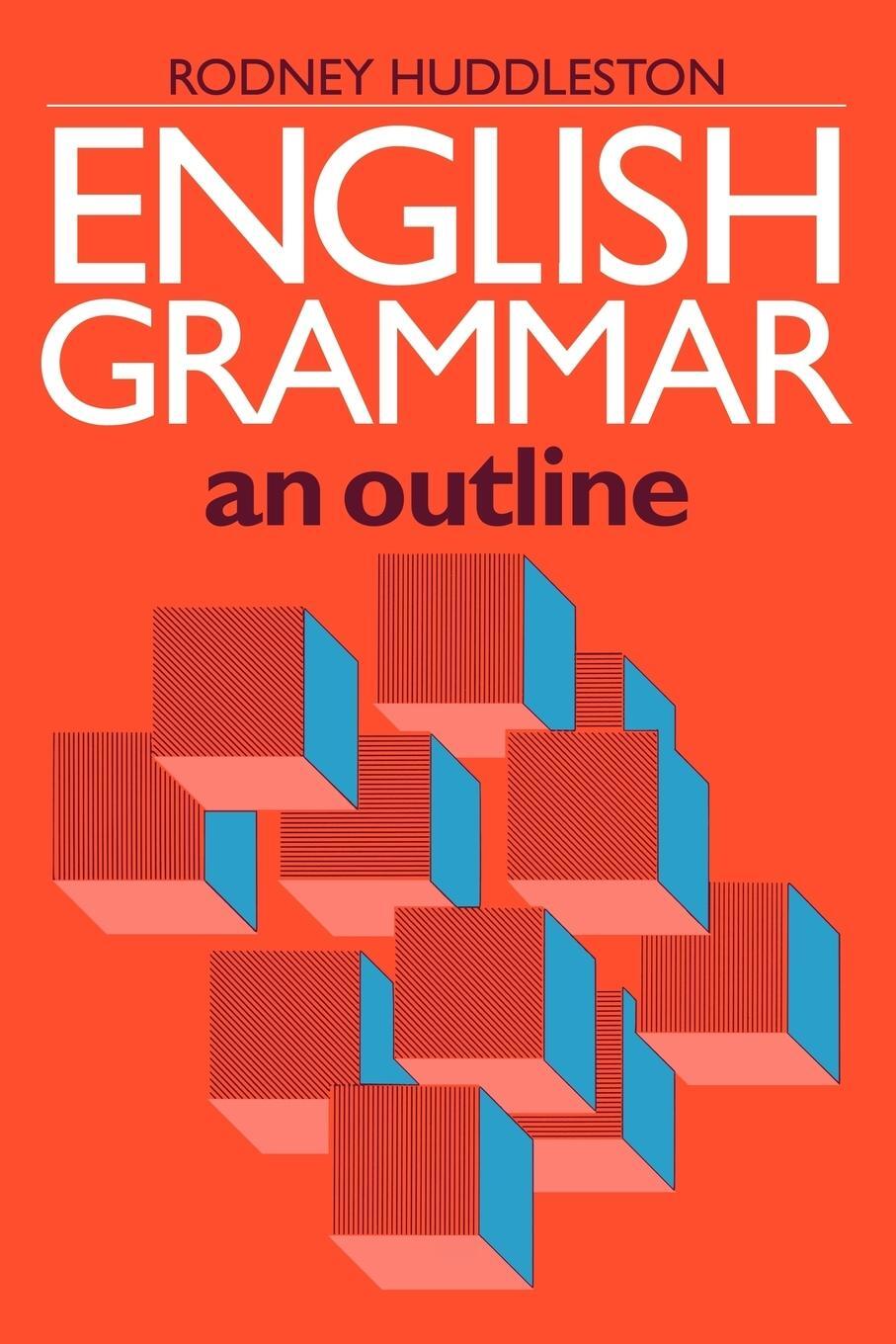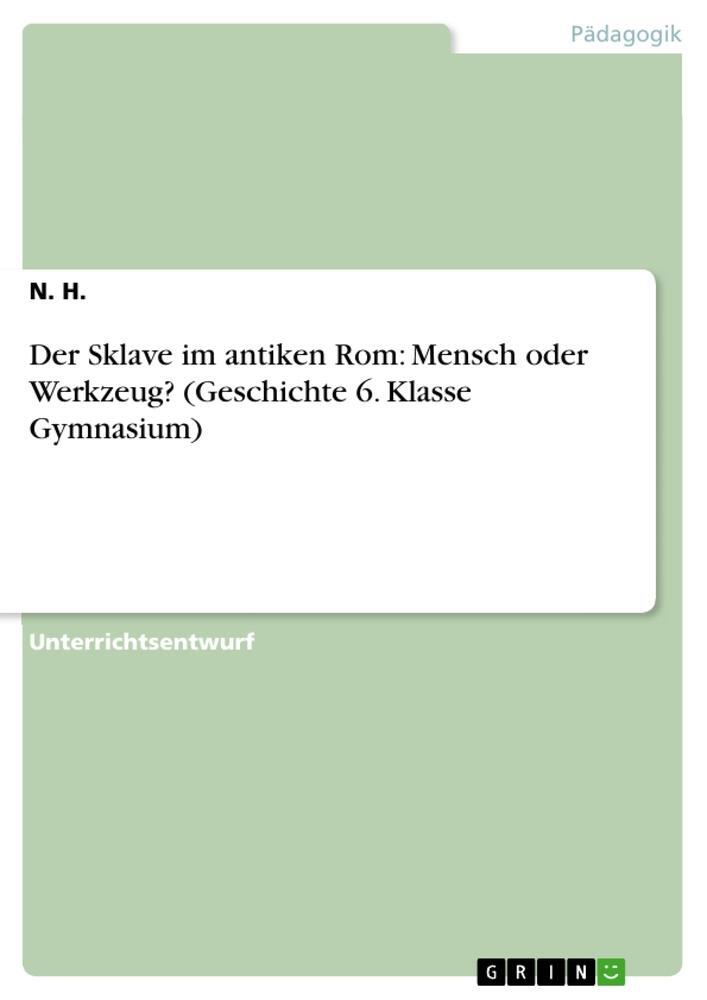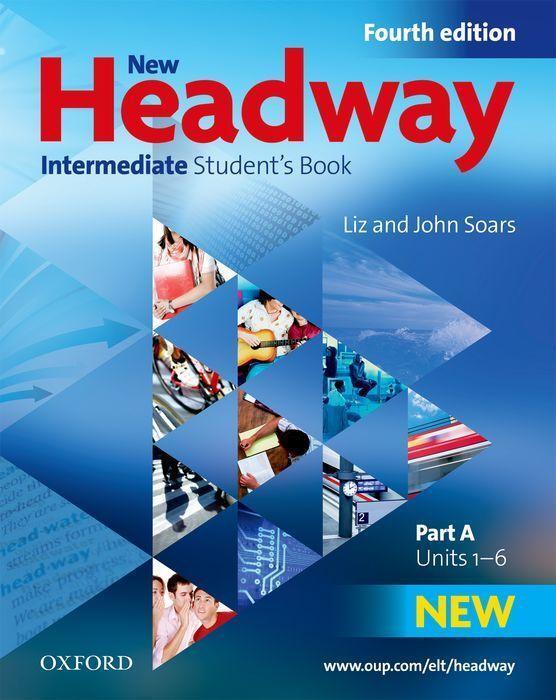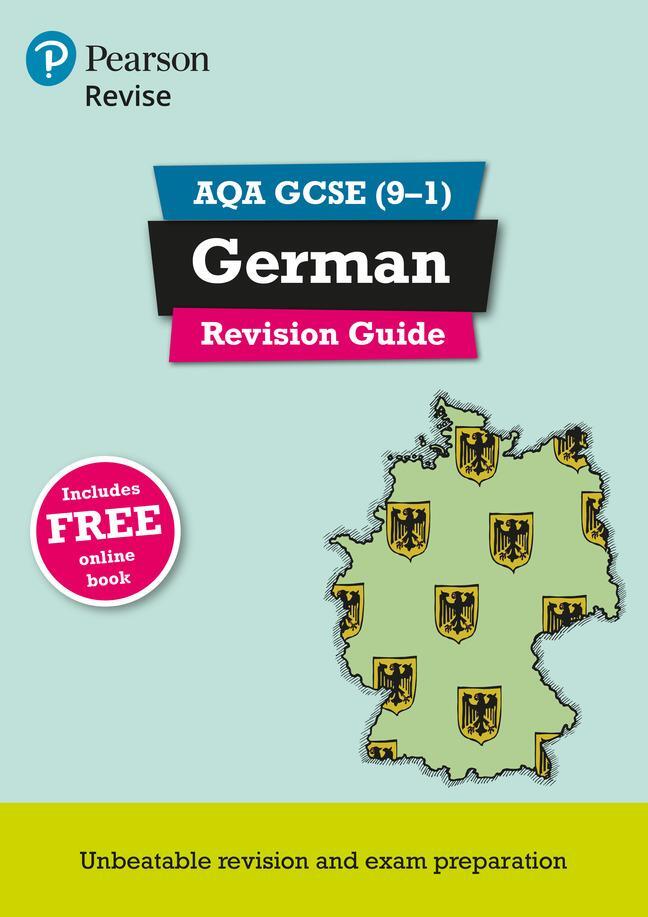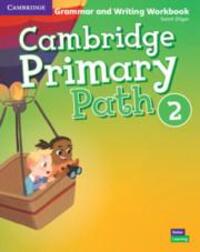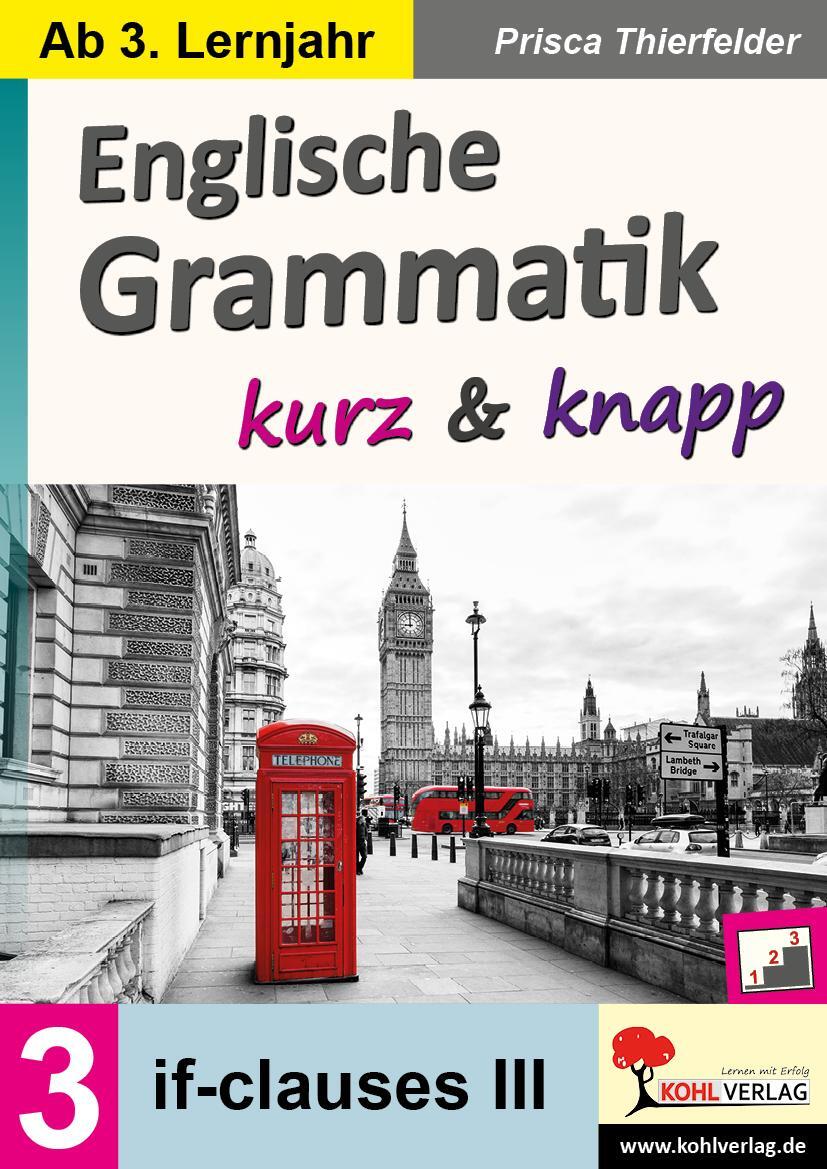43,95 €*
Versandkostenfrei per Post / DHL
Lieferzeit 1-2 Wochen
Designed for middle and secondary pre-service and in-service English teachers, this text offers a fresh lens on grammar and grammar instruction. It shows how form, function, and use can help teachers move away from decontextualized grammar instruction and begin considering grammar in applied contexts of everyday use. An important feature is attention to the history of and current attitudes about grammar through a sociocultural lens, with ideas for teachers to bring discussions of language-as-power into their own classrooms.
Designed for middle and secondary pre-service and in-service English teachers, this text offers a fresh lens on grammar and grammar instruction. It shows how form, function, and use can help teachers move away from decontextualized grammar instruction and begin considering grammar in applied contexts of everyday use. An important feature is attention to the history of and current attitudes about grammar through a sociocultural lens, with ideas for teachers to bring discussions of language-as-power into their own classrooms.
Darren Crovitz is Professor of English and English Education and the Director of English Education at Kennesaw State University, USA.
Michelle D. Devereaux is Assistant Professor of English and English Education at Kennesaw State University, USA.
Preface
Acknowledgments
Chapter One: Introduction
Defining Grammar
Grammar
Usage
Mechanics
A Very Short History of Grammar and Usage in the English Language
A Very Short History of Modern Grammar Instruction
Approaches to Grammar: Prescriptive, Descriptive, and Rhetorical
Prescriptive and Descriptive Grammars
Rhetorical Grammar
How We Address Grammar(s) in This Book
Why Definitions?
Form, Function, and Use
Parts of Speech or Lexical Categories?
The Goal For All: Metalinguistic Awareness
References
Chapter Two: Grammar and Power
What is Standard English?
Moralizing Language
Grammar(s) and Power, Society, and Identity
Power
Society
Identity
Critical Awareness and Grammar Instruction
Further Reading
References
Chapter Three: Teaching Grammar Intentionally
Grammar as an Integrated Element of Broader Design
Authority, Control, and Punishment (Sample Integrated Unit #1)
Specific Grammar Concepts for This Unit
Passive (and Active) Voice
Sentence Modifiers: Absolute Phrases
What Counts as Intelligence (Sample Integrated Unit #2)
Specific Grammar Concepts for This Unit
"To Be" Verbs and Sentence Forms
Complex Sentence Structures
How to Plan for Specific Grammar Integration
Correction and Grammar Instruction: Using Student Work Diagnostically
General Issues and What They Mean
Passage- and Paragraph-Level Patterns and What They Mean
Choppy
Awkward or Disorganized
Vague or Underdeveloped
Context Unclear
Redundant
Wordy
Sentence-Level Patterns and What They Mean
Run-Ons, Splices, and Fragments
Agreement Issues
Word Choice
Punctuation Issues
Conclusion
References
Chapter Four: Grammatical Concepts
Introduction: What It Is, and What It Ain't
Structure of Chapter Four
Limitations of Chapter Four
Unit One: Sentences and Sentence Types
The Sentence
Overview
Form and Function
Typical Form Exercises
Focusing on Use: How Sentences are Useful in Actual Communication
Experimenting with the Sentence
Scenario 1: Food Fight
Scenario 2: Gotta Get That Money
Scenario 3: Different Kinds of Bosses
Non-Sentences and Their Uses
Overview
Form
Fragments and Function
Single Words
Phrases and Other Phenomena
Clauses
Fragments in Use
Run-ons and Function
Run-ons in Use
Typical Form Exercises
Focusing on Use: How Non-Sentences are Useful in Actual Communication
Experimenting with Fragments and Run-Ons
Scenario 1: Ghost Stories
Scenario 2: Thirty Seconds of Face Time
Scenario 3: Advertising Your Town
Scenario 4: Remixing the Mocking Run-On
Simple Sentences
Overview
Form
Function
Typical Form Exercises
Focusing on Use: How Simple Sentences are Useful in Actual Communication
Experimenting with Simple Sentences
Scenario 1: Testify
Scenario 2: Honest and Direct
Scenario 3: A Real Apology
Scenario 4: Ending a Relationship
Compound Sentences and Conjunctions
Overview
Form
Function
Yet, For, and Nor
Typical Form Exercises
Focusing on Use: How Compound Sentences are Useful in Actual Communication
Experimenting with Compound Sentences
Scenario 1: Justice For All
Scenario 2: Science Fiction Point-Counterpoint
Scenario 3: Making a Deal
Scenario 4: The Ironic "Yet"
Scenario 5: The Memorable Well-Balanced Line
Scenario 6: The Dramatic Reason or Consequence
Complex Sentences
Overview
Form
Function
Typical Form Exercises
Focusing on Use: How Complex Sentences are Useful in Actual Communication
Experimenting with Complex Sentences
Scenario 1: Friday Night Plans
Scenario 2: Carlee's Concoctions
Scenario 3: Spirit Friday
Scenario 4a: Storybook Summarizer
Scenario 4b: Album Blurbs
Compound-Complex Sentences
Overview
Form
Function
Typical Form Exercises
Focusing on Use: How Compound-Complex Sentences are Useful in Actual Communication
Experimenting with Compound-Complex Sentences
Scenario 1: Junk Food in School
Scenario 2: Whiffleball Guidelines
Scenario 3: Youth Court Judge
Scenario 4: Who's the Winner
Active and Passive Voice
Overview
Form
Verb Form
Function
Typical Form Exercises
Focusing on Use: How Active Voice is Useful in Actual Communication
Focusing on Use: How Passive Voice is Useful in Actual Communication
Avoiding blame or guilt
Emphasizing a different subject for a particular reason
News reporting
Distancing the doer intentionally for political reasons
Experimenting with Passive Voice
Scenario 1: Grandpa's (Formerly) Fine Ride
Scenario 2: Party Post-Mortem
Scenario 3: Fixing Headlines
Scenario 4: Apology or Non-Apology?
Unit Two: Clauses
Dependent Clauses
Overview
Form
Function
Adverbial Clauses
Dependent Clause Relationships
Punctuating Adverbial Clauses
Adjectival Clauses
Punctuating Adjectival Clauses
Nominal Clauses
Subjects
Objects of the Preposition
**A Quick Refresher: Definitions of Direct Objects and Subject Complements**
Subject Complements
Direct Objects
Typical Form Exercises
Focusing on Use: How Dependent Clauses are Useful in Actual Communication
Experimenting with Dependent Clauses
Specific Function: Concession
Scenario 1a: Lucas Needs Help
Scenario 1b: Pleading For Leniency
Specific Function: Contrast
Scenario 2a: You're Wearing That?!
Scenario 2b: Adopting a Role
Specific Function: Reason
Scenario 3: Let's Make a Deal
Specific Function: Condition
Scenario 4: No More Bankrolling
Unit Three: Phrases
Appositive Phrases
Overview
Form and Function
Punctuation and Appositives
Typical Form Exercises
Focusing on Use: How Appositive Phrases are Useful in Actual Communication
Experimenting with Appositive Phrases
Scenario 1: Exposing the Truth
Scenario 2: Condensing the Details
Scenario 3: Piling on the Description
Participial Phrases
Overview
Form
Function
Punctuation and Participial Phrases
Typical Form Exercises
Focusing on Use: How Participials are Useful in Actual Communication
Implication
Specificity
Causation
Experimenting with Participial Phrases
Scenario 1: Game Designer
Scenario 2: Stage Director
Scenario 3: The Impact of Experience
Scenario 4a: Helping People Make the Connection, Part 1
Scenario 4b: Helping People Make the Connection, Part 2
Absolute Phrases
Overview
Form
What to Remember
Function
Explaining a Cause or Condition
Adding Detail or a Focal Point
Typical Form Exercises
Focusing on Use: How Absolute Phrases are Useful in Actual Communication
Experimenting with Absolute Phrases
Scenario 1: Game Designer
Scenario 2: Encounter with Fame (A Celebrity, Politician, or Athlete)
Scenario 3: Moment of Growth
Gerunds
Overview
Form
Function
Typical Form Exercises
Focusing on Use: How Gerunds are Useful in Actual Communication
Experimenting with Gerunds
Scenario 1: Xtreme Adventures
Scenario 2: Viral Meme Creation
Scenario 3: Helping the Noobs
Infinitives
Overview
Form
Dangling Infinitives
Function
Infinitives as Adjectives
Infinitives as Adverbs
Infinitives as Nouns
Typical Form Exercises
Focusing on Use: How Infinitives are Useful in Actual Communication
Experimenting with Infinitives
Scenario 1: Sometimes Tentative is Good
Scenario 2: The Villain's Speech
Scenario 3: The Artist Inside
Prepositions
Overview
Form
The Prepositional Phrase
Common Prepositions
Function
Adverbially and Adjectivally
Prepositions or Subordinating Conjunctions?
Never End a Sentence With a Preposition...
Typical Form Exercises
Focusing on Use: How Prepositions are Useful in Actual Communication
Experimenting with Prepositions
Scenario 1a: The Secret Party
Scenario 1b: The Virtual Reality Challenge
Scenario 2: How to Respond?
Scenario 3: The Suggestive Title
Unit Four: Lexical Categories
Nouns
Overview
Form
Function
Subjects
Objects of the Preposition
Direct Objects
Indirect Objects
Object Complements
Subject Complements
Typical Form Exercises
Focusing on Use: How Nouns are Useful in Actual Communication
Nominalization
Noun Versatility
Adjectives Acting as Nouns
Verbs Acting as Nouns
Experimenting with Nouns
Scenario 1: Titles That Pop
Scenario 2: The Power of Summary
Scenario 3: A Primer for Beginners
Action Verbs
Overview
Form and Function
Typical Form Exercises
Focusing on Use: How Action Verbs are Useful in Actual Communication
Verbs for Precision and Connotation
Atypical Verbs and Their Possibilities
Proper Nouns Used as Verbs
Experimenting with Action Verbs
Scenario 1: Communicating the Intangibles
Scenario 2: Degrees of Exaggeration and Understatement
Scenario 3: Meme Hunting
Scenario 4: Energetic Film Titles
Scenario...
| Erscheinungsjahr: | 2016 |
|---|---|
| Produktart: | Schulbücher |
| Rubrik: | Schule & Lernen |
| Medium: | Taschenbuch |
| Seiten: | 232 |
| Inhalt: | Einband - flex.(Paperback) |
| ISBN-13: | 9781138683709 |
| ISBN-10: | 1138683701 |
| Sprache: | Englisch |
| Einband: | Kartoniert / Broschiert |
| Autor: |
Crovitz, Darren
Devereaux, Michelle D. |
| Hersteller: | Taylor & Francis Ltd |
| Maße: | 254 x 179 x 17 mm |
| Von/Mit: | Darren Crovitz (u. a.) |
| Erscheinungsdatum: | 03.11.2016 |
| Gewicht: | 0,495 kg |
Darren Crovitz is Professor of English and English Education and the Director of English Education at Kennesaw State University, USA.
Michelle D. Devereaux is Assistant Professor of English and English Education at Kennesaw State University, USA.
Preface
Acknowledgments
Chapter One: Introduction
Defining Grammar
Grammar
Usage
Mechanics
A Very Short History of Grammar and Usage in the English Language
A Very Short History of Modern Grammar Instruction
Approaches to Grammar: Prescriptive, Descriptive, and Rhetorical
Prescriptive and Descriptive Grammars
Rhetorical Grammar
How We Address Grammar(s) in This Book
Why Definitions?
Form, Function, and Use
Parts of Speech or Lexical Categories?
The Goal For All: Metalinguistic Awareness
References
Chapter Two: Grammar and Power
What is Standard English?
Moralizing Language
Grammar(s) and Power, Society, and Identity
Power
Society
Identity
Critical Awareness and Grammar Instruction
Further Reading
References
Chapter Three: Teaching Grammar Intentionally
Grammar as an Integrated Element of Broader Design
Authority, Control, and Punishment (Sample Integrated Unit #1)
Specific Grammar Concepts for This Unit
Passive (and Active) Voice
Sentence Modifiers: Absolute Phrases
What Counts as Intelligence (Sample Integrated Unit #2)
Specific Grammar Concepts for This Unit
"To Be" Verbs and Sentence Forms
Complex Sentence Structures
How to Plan for Specific Grammar Integration
Correction and Grammar Instruction: Using Student Work Diagnostically
General Issues and What They Mean
Passage- and Paragraph-Level Patterns and What They Mean
Choppy
Awkward or Disorganized
Vague or Underdeveloped
Context Unclear
Redundant
Wordy
Sentence-Level Patterns and What They Mean
Run-Ons, Splices, and Fragments
Agreement Issues
Word Choice
Punctuation Issues
Conclusion
References
Chapter Four: Grammatical Concepts
Introduction: What It Is, and What It Ain't
Structure of Chapter Four
Limitations of Chapter Four
Unit One: Sentences and Sentence Types
The Sentence
Overview
Form and Function
Typical Form Exercises
Focusing on Use: How Sentences are Useful in Actual Communication
Experimenting with the Sentence
Scenario 1: Food Fight
Scenario 2: Gotta Get That Money
Scenario 3: Different Kinds of Bosses
Non-Sentences and Their Uses
Overview
Form
Fragments and Function
Single Words
Phrases and Other Phenomena
Clauses
Fragments in Use
Run-ons and Function
Run-ons in Use
Typical Form Exercises
Focusing on Use: How Non-Sentences are Useful in Actual Communication
Experimenting with Fragments and Run-Ons
Scenario 1: Ghost Stories
Scenario 2: Thirty Seconds of Face Time
Scenario 3: Advertising Your Town
Scenario 4: Remixing the Mocking Run-On
Simple Sentences
Overview
Form
Function
Typical Form Exercises
Focusing on Use: How Simple Sentences are Useful in Actual Communication
Experimenting with Simple Sentences
Scenario 1: Testify
Scenario 2: Honest and Direct
Scenario 3: A Real Apology
Scenario 4: Ending a Relationship
Compound Sentences and Conjunctions
Overview
Form
Function
Yet, For, and Nor
Typical Form Exercises
Focusing on Use: How Compound Sentences are Useful in Actual Communication
Experimenting with Compound Sentences
Scenario 1: Justice For All
Scenario 2: Science Fiction Point-Counterpoint
Scenario 3: Making a Deal
Scenario 4: The Ironic "Yet"
Scenario 5: The Memorable Well-Balanced Line
Scenario 6: The Dramatic Reason or Consequence
Complex Sentences
Overview
Form
Function
Typical Form Exercises
Focusing on Use: How Complex Sentences are Useful in Actual Communication
Experimenting with Complex Sentences
Scenario 1: Friday Night Plans
Scenario 2: Carlee's Concoctions
Scenario 3: Spirit Friday
Scenario 4a: Storybook Summarizer
Scenario 4b: Album Blurbs
Compound-Complex Sentences
Overview
Form
Function
Typical Form Exercises
Focusing on Use: How Compound-Complex Sentences are Useful in Actual Communication
Experimenting with Compound-Complex Sentences
Scenario 1: Junk Food in School
Scenario 2: Whiffleball Guidelines
Scenario 3: Youth Court Judge
Scenario 4: Who's the Winner
Active and Passive Voice
Overview
Form
Verb Form
Function
Typical Form Exercises
Focusing on Use: How Active Voice is Useful in Actual Communication
Focusing on Use: How Passive Voice is Useful in Actual Communication
Avoiding blame or guilt
Emphasizing a different subject for a particular reason
News reporting
Distancing the doer intentionally for political reasons
Experimenting with Passive Voice
Scenario 1: Grandpa's (Formerly) Fine Ride
Scenario 2: Party Post-Mortem
Scenario 3: Fixing Headlines
Scenario 4: Apology or Non-Apology?
Unit Two: Clauses
Dependent Clauses
Overview
Form
Function
Adverbial Clauses
Dependent Clause Relationships
Punctuating Adverbial Clauses
Adjectival Clauses
Punctuating Adjectival Clauses
Nominal Clauses
Subjects
Objects of the Preposition
**A Quick Refresher: Definitions of Direct Objects and Subject Complements**
Subject Complements
Direct Objects
Typical Form Exercises
Focusing on Use: How Dependent Clauses are Useful in Actual Communication
Experimenting with Dependent Clauses
Specific Function: Concession
Scenario 1a: Lucas Needs Help
Scenario 1b: Pleading For Leniency
Specific Function: Contrast
Scenario 2a: You're Wearing That?!
Scenario 2b: Adopting a Role
Specific Function: Reason
Scenario 3: Let's Make a Deal
Specific Function: Condition
Scenario 4: No More Bankrolling
Unit Three: Phrases
Appositive Phrases
Overview
Form and Function
Punctuation and Appositives
Typical Form Exercises
Focusing on Use: How Appositive Phrases are Useful in Actual Communication
Experimenting with Appositive Phrases
Scenario 1: Exposing the Truth
Scenario 2: Condensing the Details
Scenario 3: Piling on the Description
Participial Phrases
Overview
Form
Function
Punctuation and Participial Phrases
Typical Form Exercises
Focusing on Use: How Participials are Useful in Actual Communication
Implication
Specificity
Causation
Experimenting with Participial Phrases
Scenario 1: Game Designer
Scenario 2: Stage Director
Scenario 3: The Impact of Experience
Scenario 4a: Helping People Make the Connection, Part 1
Scenario 4b: Helping People Make the Connection, Part 2
Absolute Phrases
Overview
Form
What to Remember
Function
Explaining a Cause or Condition
Adding Detail or a Focal Point
Typical Form Exercises
Focusing on Use: How Absolute Phrases are Useful in Actual Communication
Experimenting with Absolute Phrases
Scenario 1: Game Designer
Scenario 2: Encounter with Fame (A Celebrity, Politician, or Athlete)
Scenario 3: Moment of Growth
Gerunds
Overview
Form
Function
Typical Form Exercises
Focusing on Use: How Gerunds are Useful in Actual Communication
Experimenting with Gerunds
Scenario 1: Xtreme Adventures
Scenario 2: Viral Meme Creation
Scenario 3: Helping the Noobs
Infinitives
Overview
Form
Dangling Infinitives
Function
Infinitives as Adjectives
Infinitives as Adverbs
Infinitives as Nouns
Typical Form Exercises
Focusing on Use: How Infinitives are Useful in Actual Communication
Experimenting with Infinitives
Scenario 1: Sometimes Tentative is Good
Scenario 2: The Villain's Speech
Scenario 3: The Artist Inside
Prepositions
Overview
Form
The Prepositional Phrase
Common Prepositions
Function
Adverbially and Adjectivally
Prepositions or Subordinating Conjunctions?
Never End a Sentence With a Preposition...
Typical Form Exercises
Focusing on Use: How Prepositions are Useful in Actual Communication
Experimenting with Prepositions
Scenario 1a: The Secret Party
Scenario 1b: The Virtual Reality Challenge
Scenario 2: How to Respond?
Scenario 3: The Suggestive Title
Unit Four: Lexical Categories
Nouns
Overview
Form
Function
Subjects
Objects of the Preposition
Direct Objects
Indirect Objects
Object Complements
Subject Complements
Typical Form Exercises
Focusing on Use: How Nouns are Useful in Actual Communication
Nominalization
Noun Versatility
Adjectives Acting as Nouns
Verbs Acting as Nouns
Experimenting with Nouns
Scenario 1: Titles That Pop
Scenario 2: The Power of Summary
Scenario 3: A Primer for Beginners
Action Verbs
Overview
Form and Function
Typical Form Exercises
Focusing on Use: How Action Verbs are Useful in Actual Communication
Verbs for Precision and Connotation
Atypical Verbs and Their Possibilities
Proper Nouns Used as Verbs
Experimenting with Action Verbs
Scenario 1: Communicating the Intangibles
Scenario 2: Degrees of Exaggeration and Understatement
Scenario 3: Meme Hunting
Scenario 4: Energetic Film Titles
Scenario...
| Erscheinungsjahr: | 2016 |
|---|---|
| Produktart: | Schulbücher |
| Rubrik: | Schule & Lernen |
| Medium: | Taschenbuch |
| Seiten: | 232 |
| Inhalt: | Einband - flex.(Paperback) |
| ISBN-13: | 9781138683709 |
| ISBN-10: | 1138683701 |
| Sprache: | Englisch |
| Einband: | Kartoniert / Broschiert |
| Autor: |
Crovitz, Darren
Devereaux, Michelle D. |
| Hersteller: | Taylor & Francis Ltd |
| Maße: | 254 x 179 x 17 mm |
| Von/Mit: | Darren Crovitz (u. a.) |
| Erscheinungsdatum: | 03.11.2016 |
| Gewicht: | 0,495 kg |

